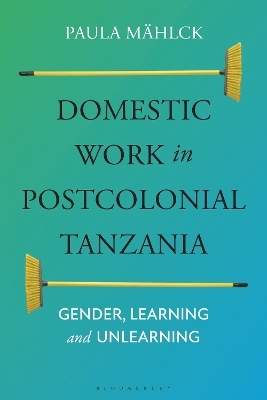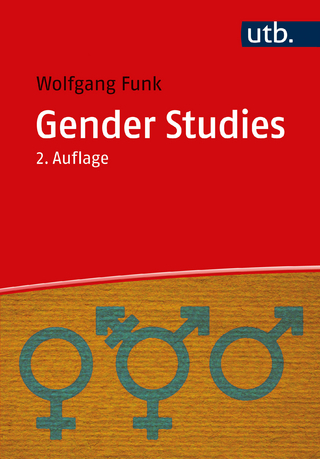
Domestic Work in Postcolonial Tanzania
Gender, Learning and Unlearning
Seiten
2024
Bloomsbury Academic (Verlag)
978-1-350-27703-8 (ISBN)
Bloomsbury Academic (Verlag)
978-1-350-27703-8 (ISBN)
Domestic Work in Postcolonial Tanzania examines the dynamics of learning domestic and care work within affluent expatriate households, characterized by significant economic privilege and, at times, diplomatic immunity. Paula Mählck employs contemporary narratives from privileged female expatriate employers and Tanzanian domestic workers, colonial documents, analysis of the built space of expatriate households, as well as literary works and analytic autoethnography to investigate the continuities and changes in contemporary employment relations as compared to those during the British colonial era from the 1920s to the 1960s. While the relationship between women employers and domestic workers serves as the entrance of the investigation, the study delves deeper into postcolonial dynamics of learning and their interconnections with gender, race, and class. It emphasizes learning to cope as a dynamic process involving negotiation and movement, offering a nuanced perspective that transcends the victim/survivor dichotomy.
Moreover, the book highlights the subtlety of unlearning oppressive practices and relations, distinguishing them from formal affirmative actions. It underscores unlearning as a means for individuals and collectives to challenge established knowledge, perceptions, and practices, aiming to demonstrate the possibility of change. Through its multifaceted approach, which includes the historicization of alternative narratives, sociological analysis, theoretical discussions on social reproduction, and critical examinations of research methods for Western scholars researching non-Western contexts, this book provides valuable insights into the complexities of domestic work taking place in expatriate households in postcolonial Tanzania. It offers a thought-provoking examination of learning, learning to cope, and unlearning within the context of privilege and power.
The ebook editions of this book are available open access under a CC BY-NC-ND 4.0 licence on bloomsburycollections.com. Open access was funded by Stockholm University.
Moreover, the book highlights the subtlety of unlearning oppressive practices and relations, distinguishing them from formal affirmative actions. It underscores unlearning as a means for individuals and collectives to challenge established knowledge, perceptions, and practices, aiming to demonstrate the possibility of change. Through its multifaceted approach, which includes the historicization of alternative narratives, sociological analysis, theoretical discussions on social reproduction, and critical examinations of research methods for Western scholars researching non-Western contexts, this book provides valuable insights into the complexities of domestic work taking place in expatriate households in postcolonial Tanzania. It offers a thought-provoking examination of learning, learning to cope, and unlearning within the context of privilege and power.
The ebook editions of this book are available open access under a CC BY-NC-ND 4.0 licence on bloomsburycollections.com. Open access was funded by Stockholm University.
Paula Mählck is an Associate Professor of Sociology of Migration and Ethnicity at Stockholm University's Department of Education. She is also an affiliated researcher at the Institute for Research on Migration, Ethnicity and Society (REMESO) at Linköping University.
Acknowledgements
Preface
Chapter One: Introduction
Chapter Two: Tales of the Field
Chapter Three: Pedagogies of Unlearning
Chapter Four: Learning from the Archives
Chapter Five: The Racial Grammar of Paid Domestic Work
Chapter Six: Can the Oppressor be Oppressed?
Chapter Seven: Imagining Differently
References
Bibliography
Index
| Erscheinungsdatum | 29.10.2024 |
|---|---|
| Verlagsort | London |
| Sprache | englisch |
| Maße | 156 x 234 mm |
| Themenwelt | Sozialwissenschaften ► Soziologie ► Gender Studies |
| Sozialwissenschaften ► Soziologie ► Mikrosoziologie | |
| ISBN-10 | 1-350-27703-7 / 1350277037 |
| ISBN-13 | 978-1-350-27703-8 / 9781350277038 |
| Zustand | Neuware |
| Haben Sie eine Frage zum Produkt? |
Mehr entdecken
aus dem Bereich
aus dem Bereich
wie sich das weibliche Gehirn jetzt verändert und Sie diese neue …
Buch | Hardcover (2023)
Mosaik (Verlag)
24,00 €
eine kritische Theorie in 99 Fragmenten
Buch | Softcover (2023)
Campus (Verlag)
40,00 €


